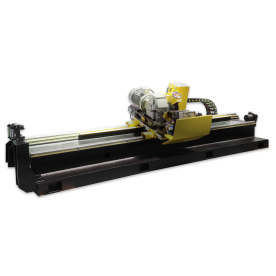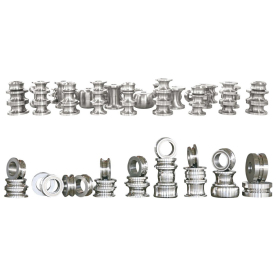****
When it comes to the manufacturing industry, one of the essential pieces of equipment that companies require is a pipe-making machine. These machines are fundamental for producing various types of pipes used in numerous applications, including construction, plumbing, and industrial purposes. However, with a wide variety of pipe-making machines available on the market, buyers often face the daunting task of navigating price comparisons to find a model that suits their budget and operational needs. In this article, we will explore the factors affecting pipe-making machine prices, key features to look for, and a comparative overview to assist potential buyers in making informed decisions.
Factors Affecting Pipe Making Machine Prices
1. **Type of Machine** – Pipe-making machines come in different types, including automatic, semi-automatic, and manual machines. Generally, automatic machines, which require less operator intervention and offer higher productivity, come with a higher price tag compared to manual models. – Specialty machines designed for specific pipe materials, such as PVC, PE, or metal, can also vary significantly in price due to the additional engineering required.
2. **Production Capacity** – The price of pipe-making machines often correlates with their production capacity. High-capacity machines capable of producing pipes at a faster rate are typically more expensive. Buyers should assess their production needs to ensure they select a machine that offers an optimal balance of cost and capacity.

Understanding the Factors Affecting Pipe Making Machine Price Comparison: A Comprehensive Guide for Manufacturers and Buyers
3. **Technology and Features** – Modern advancements in technology have led to the development of machines featuring computer numerical control (CNC), automation, and smart controls. These advanced features offer improved precision and efficiency but contribute to a higher purchase price. Buyers should determine whether the investment in technology aligns with their long-term production goals.
4. **Brand Reputation** – Established manufacturers often charge a premium for their machines due to their reputation for quality and reliability. On the other hand, lesser-known brands may offer lower prices but could compromise on durability and service support. Buyers should weigh the price against the brand’s reputation and warranty offerings.
5. **Material and Build Quality** – The materials used in the construction of pipe-making machines significantly impact their prices. High-quality, durable materials are essential for the longevity and performance of the machine. Machines built from robust materials tend to be more expensive but can provide better value in terms of lifespan and reduced maintenance costs.
6. **Customization Options** – Some manufacturers offer customization options tailored to specific production needs. Customizable features, while beneficial, can also add to the initial cost of the machine. Buyers should consider whether these custom features are necessary for their production processes.

Understanding the Factors Affecting Pipe Making Machine Price Comparison: A Comprehensive Guide for Manufacturers and Buyers
Price Comparison Overview
To provide a clearer perspective, let’s analyze pricing across various categories of pipe-making machines:
– **Manual Pipe Making Machines** – Price Range: $5,000 – $15,000 – These machines are generally basic, designed for lower volume production, and are ideal for small businesses or startups.

Understanding the Factors Affecting Pipe Making Machine Price Comparison: A Comprehensive Guide for Manufacturers and Buyers
– **Semi-Automatic Pipe Making Machines** – Price Range: $15,000 – $50,000 – These models offer a balance between productivity and manual oversight, making them suitable for medium-sized operations.
– **Automatic Pipe Making Machines** – Price Range: $50,000 – $150,000+ – High-capacity machines with advanced features designed for high-volume production. Ideal for large manufacturers looking for efficiency and scale.
– **Specialty Pipe Making Machines** – Price Range: $40,000 – $200,000+ – These cater to specific materials or unique production methods (like large diameter pipes or particular materials), with prices varying based on complexity and customization.
Conclusion
In conclusion, conducting a pipe making machine price comparison requires a deep understanding of various factors that influence cost. Buyers must assess their production needs, budget constraints, and the specific features they require to find the right machine. Investing in a high-quality machine may offer long-term savings through increased efficiency and reduced maintenance. By weighing all these aspects, manufacturers and buyers can make informed decisions that will benefit their operations for years to come. While price is an important consideration, it is equally vital to consider reliability, support, and adaptability when making this critical investment.Precision Impedor for Circuits



